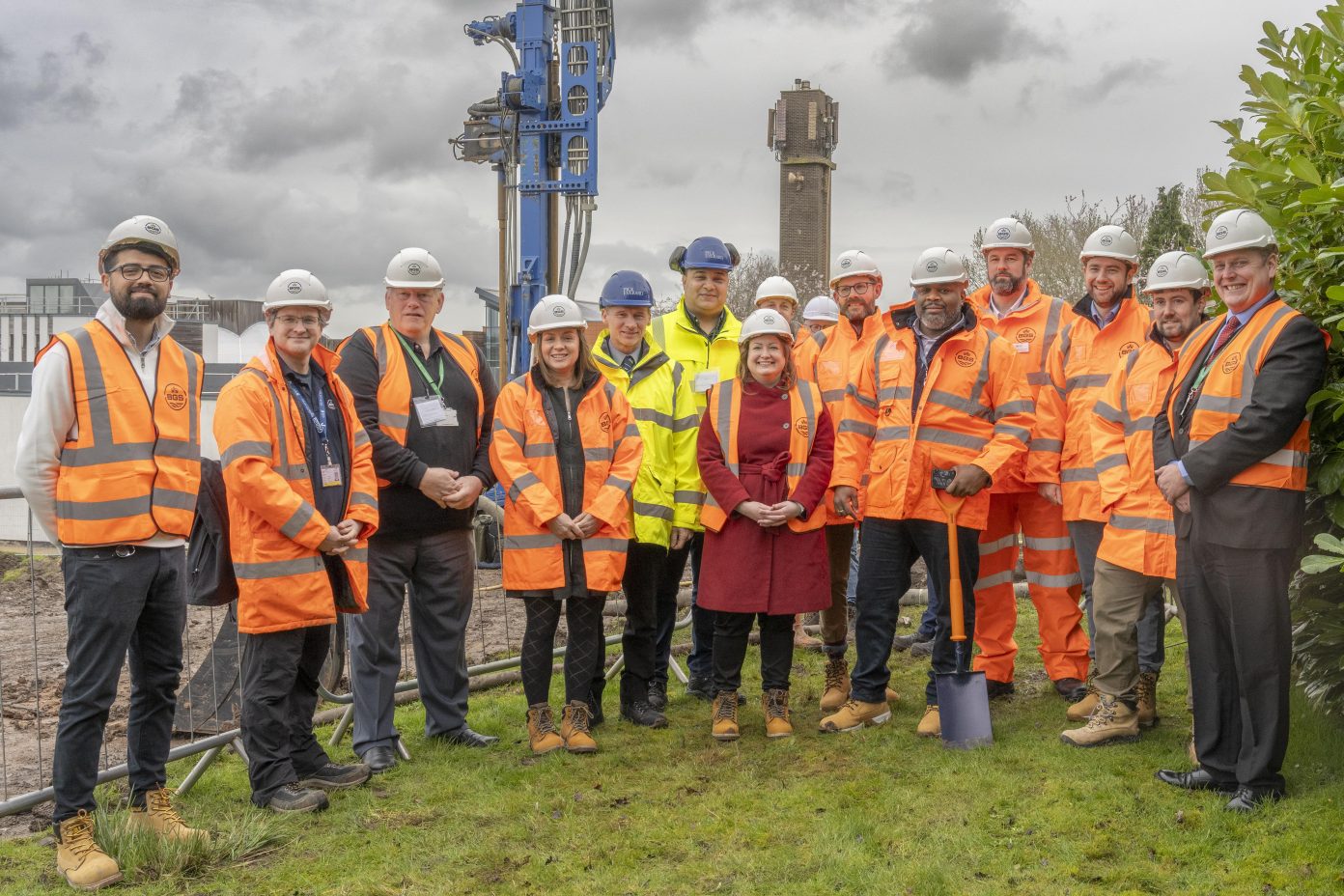
The British Geological Survey (BGS) has begun construction of a geothermal heat pump project at its headquarters in Keyworth, Nottinghamshire.
The £1.7m renewable energy system – the largest of its kind in Rushcliffe and the first to be installed on the UK Research and Innovation (UKRI) estate – will involve the removal of gas boilers and will heat two buildings on the Keyworth site, where more than 400 members of staff work, including tenants and non-BGS staff.
The project will involve drilling a total of 28 boreholes to a depth of 225m.
BSG said the system will help the organisation save approximately 30 tonnes of carbon dioxide (CO2e) a year and reduce its heating bill.

A ‘living laboratory’
BSG said the project will constitute a ‘living laboratory’, with state-of-the-art sensors deployed in the heat extraction boreholes and buildings.
The heating system’s advanced monitoring will be able to assess the running costs and efficiency of the heat pumps and provide a case study for other organisations, such as schools and hospitals, that are thinking of switching from fossil fuel boilers to heat pumps.
The installation of the ground-source heat pump is part of a wider project to help achieve UKRI’s aim of reaching net zero by 2040. In 2022 it installed 1,000 solar panels above BGS’s car parking area.











